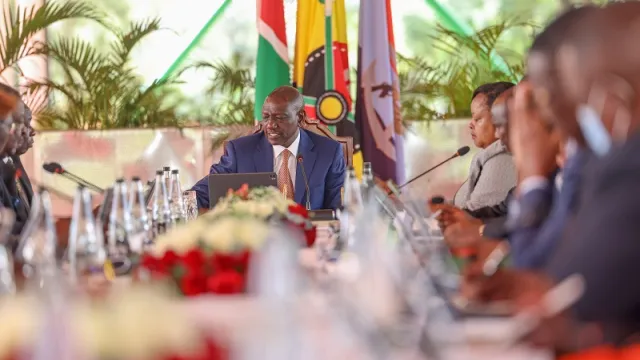Why govt is consolidating cash into a single account

Why govt is consolidating cash into a single account
The government has approved the rollout of the Treasury Single Account (TSA) system for both National and county governments in a move geared at enhancing financial management and transparency in the country.
In a Cabinet meeting chaired by President William Ruto at State House, Nairobi, the government highlighted the crucial role that the TSA will play in simplifying government banking processes.
Visibility into government cash
The move aims to streamline financial transactions, creating a unified system that provides visibility into government cash resources. This transparency is essential for fostering accountability and ensuring efficient cash management across various government entities, the President noted.
“Government funds are banked in commercial bank accounts and individuals keep earning interest. This must stop. All the benefits of public funds must only accrue to the people of Kenya and no one else,” noted President Ruto.
By consolidating funds into a single account, the government can easily monitor and track its financial resources. This visibility is billed to not only promote accountability but also aid in making informed financial decisions.
Moreover, TSA is expected to contribute to the control of expenditure and minimize the fragmentation of government accounts in commercial banks in the country.
In terms of structure, the TSA will consist of the National Exchequer Account, the TSA Sub-Account, and the County Revenue Fund. This structure provides a framework for financial operations but is also set to ensure that funds are appropriately allocated at both the national and county levels.
The decision to implement the TSA follows a directive from the government in August, instructing all ministries, counties, departments, and agencies to transition to the unified digital platform using Paybill number 222222.
Head of Public Service Felix Koskei, in a circular issued on July 10, 2023, directed the closure of all alternative payment platforms within 30 days. Since this directive, there has been a noticeable and substantial increase in non-tax revenue collection by State agencies over the ensuing months.
Read also: Inflation worse than default
E-procurement in government
Additionally, the Cabinet approved the rollout of Electronic Government Procurement system (e-GP) in both levels of government. This plan seeks to enhance various aspects of public procurement, such as fairness, equity, transparency, competitiveness, and cost-effectiveness.
According to the Cabinet memo, this move has potential cost reductions ranging between 10 and 15 percent, translating to roughly KSh90 billion in government expenditure savings related to public procurement every year.
What's more, the Cabinet gave the green light for the introduction of Public-Private Partnership (PPP) Regulations to bolster the structure and performance of PPP projects.
These regulations outline guidelines for the planning, procurement, management, and monitoring of PPP projects in the country. The regulations, which now await consideration by Parliament, also include principles related to environmental and climate change considerations.



